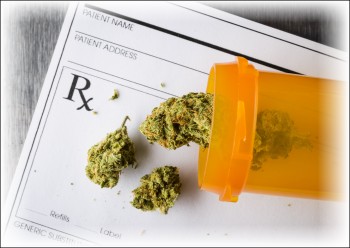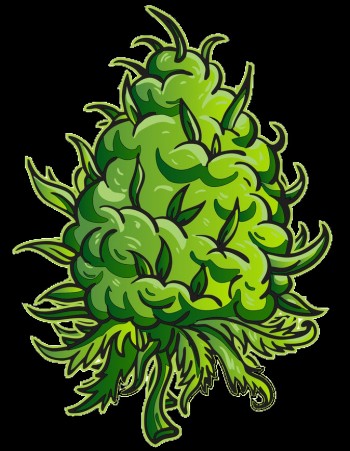
In several places, the recreational use of marijuana by individuals 21 and older has been legalized as public opinions about the drug have softened. But it's important to remember the health effects of frequent use. There are some long-term negative and positive effects that medical professionals and therapy experts have noted.
According to Aaron Weiner, a cognitive behavioral therapist and addiction counselor in Lake Forest, Illinois, the severity of long-term marijuana usage is greatly influenced by the age of the user and the potency of the marijuana being consumed. The effects of marijuana use are worse the younger a person is when they first start using it and the stronger the THC concentration.
DANGERS AND LONG TERM EFFECTS OF USING CANNABIS
Marijuana use may have long-term effects on brain development in addition to its more immediate or short-term effects. This is especially true if marijuana use begins during adolescence when the brain is still undergoing development and, can result in a number of many other long-term mental and physical health issues, some of which may include:
Breathing problems. The respiratory tract, which includes the throat and lungs, can get irritated by marijuana smoke. Regular use over an extended period raises the risk of issues like cough, chronic bronchitis, elevated risk and recurrence of pneumonia, and other respiratory ailments.
What are the risk factors for pregnancy. According to research, prenatal marijuana exposure increases a child's risk of developing attention, cognitive, and problem-solving issues. According to some research, a nursing mother's breast milk may include small levels of THC that can pass on to the baby and affect how the baby's brain develops.
Testicular cancer will be more likely. According to a few studies, teenagers who use marijuana are more likely to develop a severe form of testicular cancer. Severe nausea and vomiting that is cyclical. Cannabinoid hyperemesis syndrome is a disorder that, although uncommon, can arise from prolonged use of the drug.
Developmental problems with adolescents' brains? According to several studies, consistent cannabis use during adolescence can affect learning, cognition, and impulse control because the brain is still maturing at that time. According to research, excessive cannabis usage before the age of 18 causes noticeable abnormalities in brain development. Though the evidence isn't clear-cut, chronic or severe marijuana usage may be associated with long-term memory loss and IQ reductions in individuals over the age of 18, with possible adverse effects.
Neuropsychiatric conditions? Numerous studies relate marijuana usage to a higher likelihood of developing mental conditions like schizophrenia, anxiety, and depression in people who are inherently susceptible to such conditions. In fact, one study indicated that everyday marijuana usage, especially in early life, increases the risk of schizophrenia in persons with certain genes by 7 times compared to people without the trait who do not use the drug. In addition, cannabis has been shown to make schizophrenia symptoms worse in people who already suffer from the disorder.
Addiction? Marijuana has the potential to be addictive. Adolescent use increases the risk of subsequent compulsive abuse or the emergence of addiction. An increased chance of developing other substance use issues. According to several studies, marijuana usage may raise the chance of developing a current or future addiction to another drug, such as nicotine or alcohol.
The effects of using a high potency weed are unknown. The rise in marijuana strains with increasing potencies may come with additional, as-yet-unknown dangers. The typical THC concentration in marijuana that was seized was lower than 4% twenty years ago. It exceeded 15% in 2018. The full impact that these greater THC concentrations will have on the brain and body, especially the developing brain, is still unknown to researchers.
CANNABIS WITHDRAWAL
Some people may become physically dependent on marijuana if they use it on a daily basis and chronically. Dependence is the physiological adaptation of the body to marijuana usage, which means that when someone quits using marijuana, withdrawal symptoms appear because the body has grown accustomed to having cannabis in it. Shortly after someone who has a serious physical dependence on marijuana stops using it, they may experience weed withdrawal symptoms. After quitting, symptoms often peak within the first week and might linger up to two weeks. Among the withdrawal signs are:
Irritability.
Shifts in your mood.
Difficulty in sleeping.
Lack of appetite.
Craving for cannabis
Restlessness.
CANNABIS ADDICTION
Cannabis addiction can have a negative impact on many facets of life. To diagnose a substance use disorder, medical experts refer to the Diagnostic and Statistical Manual, Fifth Edition (DSM-5 )'s diagnostic criteria. The following symptoms could be present in someone with a cannabis use disorder:
making unintended use of excess marijuana.
Being unable to despite attempting, to stop using marijuana.
Increasing the amount of time spent getting, consuming, and recovering from cannabis usage.
Getting a strong thirst for marijuana.
Regardless of ongoing issues at work, school, or home, continuing to smoke cannabis.
Making use of marijuana despite the fact that it disrupts relationships or social interactions.
Choosing to use marijuana instead of engaging in other activities you used to like.
Consuming marijuana in conditions that are physically risky.
Maintaining marijuana use despite emotional or physical issues.
Requiring greater amounts of marijuana to achieve the same high.
if marijuana use is stopped, experience withdrawal symptoms.
There have never been any cases of an adult or adolescent passing away from marijuana use. However, consuming excessive amounts of marijuana or taking large dosages of THC can have some very undesirable side effects, including anxiety, paranoia, and in rare instances, psychotic episodes with possible hallucinations or delusions.
Despite the fact that there is no FDA-approved medicine for the treatment of cannabis use disorder, those who are diagnosed with it may benefit from care that tackles multiple substance use, manages co-occurring mental health conditions, and makes use of behavioral therapy.
BOTTOM LINE
Recreational cannabis can be consumed for beneficial reasons but can prove to be detrimental when the consumer overuses and becomes dependent on it. The effect of continuous daily usage of cannabis can be negative to the consumers' mental and physical health issues.
SMOKE WEED EVERYDAY? READ ON...
I SMOKED POT EVERY DAY FOR 50 YEARS - THE CATHERINE HILLER STORY!






